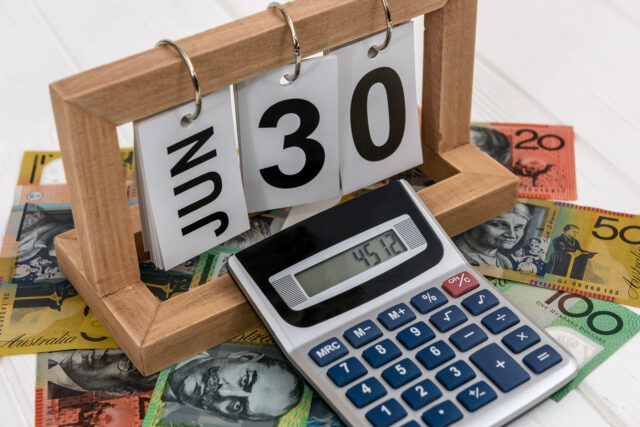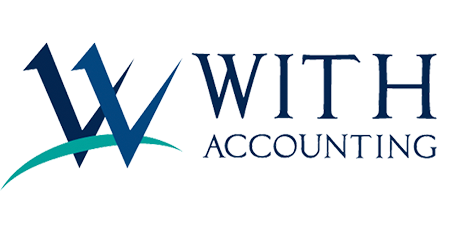Wooden calendar with cubes and word EOFY
It is always good to be prepared and know what you are entitled to claim for tax deduction. We will go through the list to cover some basic tax-deductible expenses which you can claim for your tax return.
When your income is above certain threshold and you were a resident of Australia for tax purposes, you must report your income through a tax return. You can lodge a tax return beginning 1 July and the due date is on 31 October. Please beware that any late lodgement beyond this due date is subject to penalty.
Let’s have a look at the list which will help you to maximise your claim for tax deductions.
To do list
- Look for what is tax deductible
If you know what expenses tax deductible for your occupation are, it is important that you record and keep the evidence for your future use. There are various sources where you can find the types of expenses to claim as tax deductions. However, we strongly recommend that you seek advice from an accountant before claiming to ensure your entitlement.
- Record keeping and receipts
If you wish to lawfully increase tax deductible amount, you must keep the record and safely retain your receipts. This will also save your time in future, as you won’t have to look for old receipts or simply may not remember the details of your expenses. You can claim the deductions if you have recorded the amounts and retained your tax receipts in a safe place.
- Motor vehicle expenses
Generally, you cannot claim any motor vehicle expenses if you only travel between home and workplace. On a contrary, you can claim motor vehicle expenses if you are required to travel between other work-related locations and workplace, such as sites or meeting with clients. Additionally, you can claim for the motor vehicle expenses if you travel between home and workplace, and you are required to carry bulky or heavy tools and equipment. There are two methods for you to claim motor vehicle expense, a logbook method or cents per kilometre method.
You must keep a logbook for at least 12-continous weeks in your first year of using a logbook method. Your petrol expenses, registration, insurance and other maintenance costs will need to be recorded in your logbook. You will be able to claim a proportion relating to taxable purpose and can be used for up to 5 years.
Cent per kilometre method allows a taxpayer to claim 68 cents per kilometres travelled related to work or business. You can claim up to maximum 5,000 km using this method. You must show your workout on how you calculated the total distances travelled.
For a commercial vehicle over 1 tonne, you can claim 100% for the expenses as the use is considered work-related or business purpose. You must record and retain any evidence for the claims.
- Home office expenses
If you have a designated area allocated for your work at home, you can claim the costs related to purchase of office furniture or equipment for the decline in value. If the cost is below $300, you may write-off immediately. Additionally, you may claim for the costs related to home office phone, internet, stationery, printer, ink cartridge, etc. if incidental to carrying out your work at home. You need to portion the actual floor area allocated for work against the entire floor area to calculate the costs.
- Donations
Donation can help to reduce your taxable income. You can claim for any amount more than $2 you have donated to a deductible gift recipient. A deductible gift recipient is a not-for-profit organisation which is registered with Australian Business Register to collect donations. You may not be able to claim for donation if the amount is below $2 or you have donated to non-DGR organisation. The best way to find out if the organisation can provide with a tax-deductible invoice (or, generally a tax invoice) to confirm your eligibility to claim the donation amount.
- Work-related expenses below $300
You can claim any work-related expenses to the extent for its taxable purpose and given it is necessary in earning your assessable income. You may claim immediately to the extent for its taxable purpose or in full, given the amount is below $300 and a workout is available. However, if the cost had been recouped by any way (e.g. compensation from employer), you cannot claim the expenses.
For example, you can claim the expense to purchase stationery as an employee if the item is necessary in earning assessable income and had not been compensated by your employer. Similarly, a purchase of tools for a carpenter can be claimed for work-related expenses if above is satisfied.
You must remember that any claim over $300 must be provided with an evidence under substantiation rule.
- Income protection insurance
You can claim for income protection insurance which you have paid until 30 June. This excludes any amount of insurance paid from your super. The expenditure must have incurred by yourself. Apart from its tax deductibility, it may be of great help should there be an event where your employment has been affected.
- Outdoor activities
Given your specific occupation commonly requires outdoor activities, you can claim for expenses incurred to buy sunscreen, sunglasses or other cosmetics for protection purposes.
This article provides a general overview of work-related expenses you may be entitled to claim. If you need an expert advice, we recommend calling our team. Our experienced staff will be able to help you maximise claims for this year’s tax return.
Thank you.
*Note that above information is for general use only and is not intended to substitute for a professional tax advice. You must always seek a professional advice from an accountant to avoid unlawful acts.



